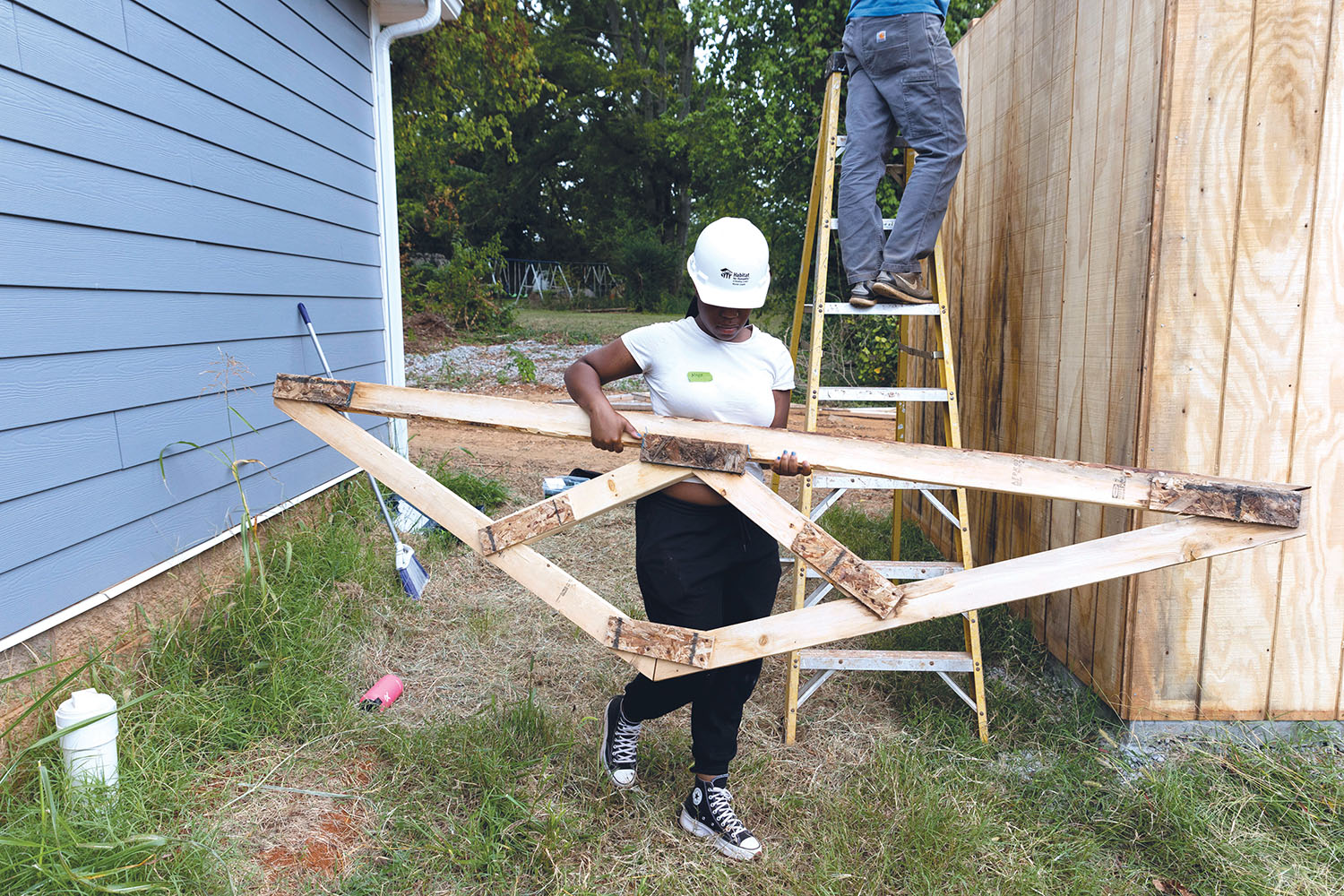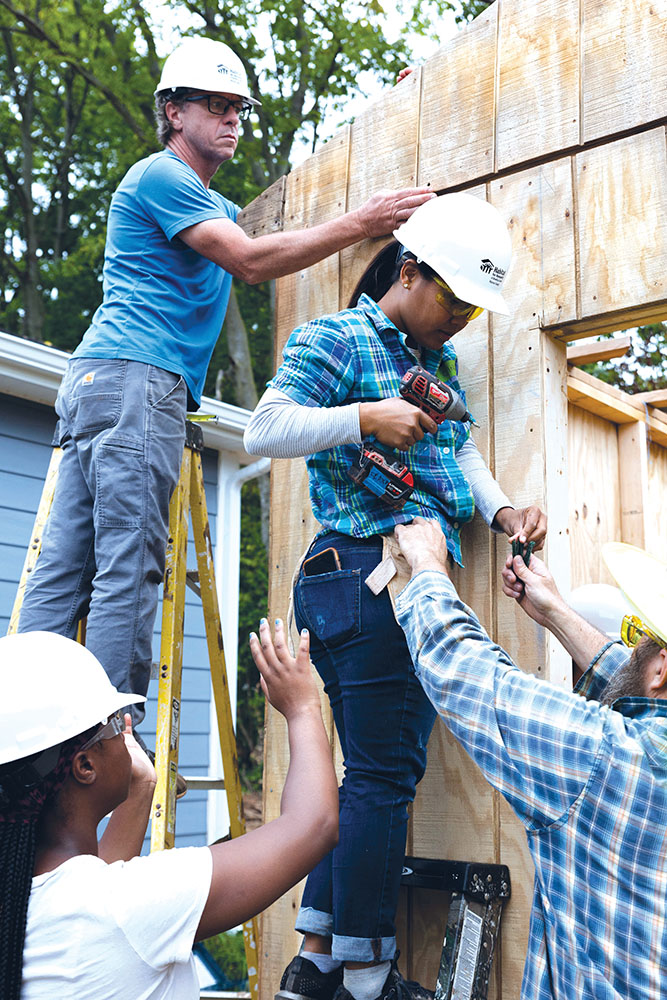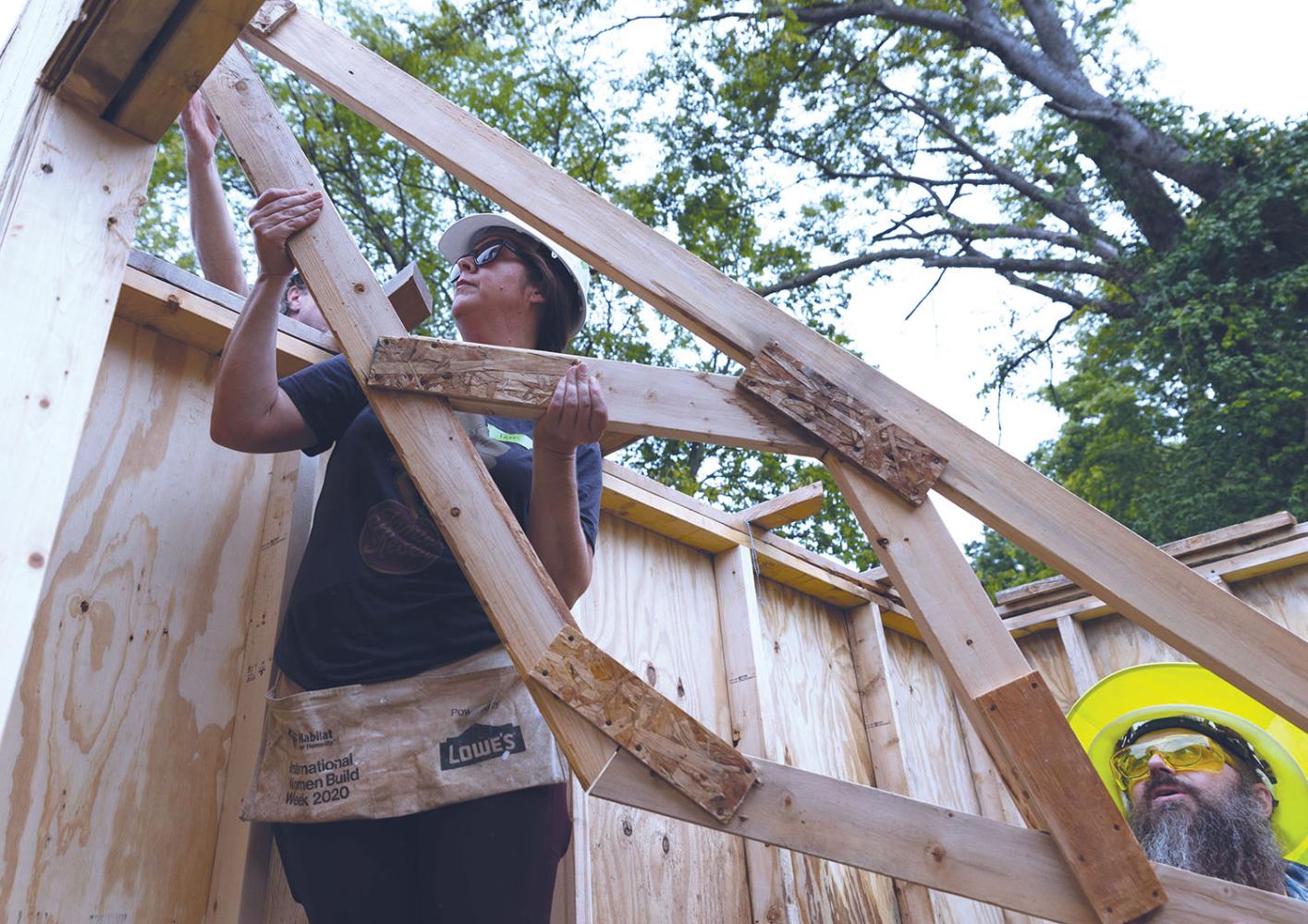Bowling Green has not been immune to the current housing crisis. The cost of American housing has been increasing since the 2010s, according to The Guardian. With the cost of housing rising and availability of affordable units decreasing, community members are having trouble finding stability.
According to Bowen National Research in its 2019 housing assessment of Bowling Green, there was a clear lack of affordable housing.
The assessment found that Bowling Green housing was not easily affordable. Cost-burdened households, defined as those paying over 30% of their income on housing, made up 45.5% of renter-occupied households in Bowling Green.
“With so many renters in (Bowling Green) paying a disproportionately high share of their income towards rents, it is clear that many renter households in (Bowling Green) are likely struggling to meet their housing costs,” Bowen National Research reported.
In the Bowling Green housing market, the assessment found that for-sale housing priced over $200,000 made up 66.9% of the supply. Only 40% of the households in Bowling Green have incomes sufficient enough to afford these homes, according to Bowen National Research.
Within Bowling Green, HOTEL INC, New Path Recovery Home and Habitat for Humanity are organizations offering services for those struggling with housing instability.
The WKU Habitat for Humanity chapter works with volunteers in Bowling Green to build affordable homes. According to the Habitat for Humanity website, its mission is to “build strength, stability, and self-reliance through shelter.”
A’Nyah Jones, a senior from Louisville, is the membership coordinator for the campus chapter. She said Habitat for Humanity creates opportunities for home ownership for people whose financial situations would not otherwise allow it.
Jones said the campus chapter volunteers to construct homes through a partnership with the Warren County chapter.
Habitat For Humanity involves families participating in the construction process of their house.
“For them to actually be able to help build their house, they take great pride in that,” Jones said.
Habitat also creates an affordable mortgage plan for families according to what they’re able to pay for, Jones said.
“We believe that everybody deserves to be in an affordable, decent living situation. So that’s our main focus,” Jones said.
Members don’t need any experience in construction and are encouraged to learn through experience. Jones said new members are taught how to use tools on-site.
Jones said she had no prior experience with construction and learned by working with Habitat for Humanity alongside the faculty adviser, Bryan Reaka.
“I think the only thing I really knew how to do was put a nail in the wall,” Jones said.
The Warren County Habitat For Humanity chapter accepts volunteers for constructing homes, and the WKU chapter is always accepting new members.
Jones said students can join by visiting the club’s office in the Environmental Sciences and Technology Building and paying a yearly $20 membership fee.
“We’re always looking for more hands-on help, because, you know, the more people we have, the better,” Jones said.

HOTEL INC, another Bowling Green organization working with people experiencing homelessness to assist them in the journey of obtaining housing.
Katy Attanasi Barker works to communicate the organization’s mission to the Bowling Green area. As a storyteller for the non-profit, Barker said she manages marketing and spreading information about HOTEL INC and its services.
“We’re trying to work on the housing issue, both by walking alongside the people who are affected, who are experiencing homelessness, and then also on the supply side,” Barker said.
Barker said the organization prioritizes working on partnerships with people dealing with the housing crisis and the supply needs of those individuals.
The demand for housing in Bowling Green outweighs the supply, Barker said.
“There’s an added crunch on the market,” Barker said. “People are priced out of the market, and we have higher levels of homelessness.”
As a navigator at HOTEL INC, Beth Ramsey partners with individuals experiencing extreme material poverty or homelessness and assists them in obtaining stable housing.
“We see them as equal or more than equal in this relationship,” Ramsey said. “They’re not my clients; I’m not telling them what to do.”
Since HOTEL INC views participants in this way, Ramsey said they prefer to call them partners in their journey to stable housing. Partners do most of the work; their progress is dependent on their dedication to the partnership, Ramsey said.
“It’s a very strong commitment to the dignity of each person,” Barker said.
Partners can attend a class called foundations that lasts eight weeks while working with a navigator on their personal situation, Ramsey said.
Between deposits and relocation costs, Ramsey said moving into an apartment can cost between $1,500 and $2,000. If its budget allows for it, HOTEL INC pays for a deposit for its partners upon their completion of the class.
HOTEL INC works with local landlords to find housing for partners by the end of the class. Ramsey said the process can take longer as they wait for a voucher, through which the government pays part of the monthly rent. In these cases, HOTEL INC will continue to work with partners for two years or as long as they choose.
Throughout the class, partners are educated on rental agreements, what to look for when moving into a new place, landlord and renter responsibilities, budgeting and money management, Ramsey said. This work includes one-on-one sessions between navigators and partners.
Ramsey said she works with partners to help them recognize where their money is going. She also works with partners to discuss how to increase their income, whether that be through switching jobs or moving to a full-time job.
These sessions give navigators the opportunity to build relationships with partners and create an environment that is non-judgmental.
“We want a safe environment where we can be honest with them about their challenges but also where they feel safe to express themselves and ask questions,” Ramsey said.
Ramsey said it can be a lot more difficult to secure stable housing without having some idea of where to find information or assistance. She said she is glad to help partners overcome hurdles in their process, even if it is as simple as needing help filling out paperwork.
“We don’t want them to lose their housing over not wanting to ask for help or not understanding something,” Ramsey said. “Our job as navigators is to help get through those obstacles.”
HOTEL INC works with landlords to find housing that will work with partners with felonies or those without good landlord references, Ramsey said. It discovers its partners’ needs and finds a landlord that can meet them, Ramsey said.
Since January 2023, Barker said 64 partners have been housed in Bowling Green with assistance from HOTEL INC.
HOTEL INC holds two volunteer recruitment events a year. Barker said volunteers meet with the volunteer coordinator and receive training on their duties.
Barker said volunteers can help work in the office or prepare meals for classes and HOTEL INC events.
Dealing with addiction adds another layer to the difficulty of securing housing stability, Rachel Jackson, the director of New Path Recovery Home, said.
New Path Recovery Home provides shelter to recovering women in need of a safe, stable environment.
Jackson said she opened the home in 2014, a little over three years after beginning her own recovery.
Jackson said she recently experienced being declined for housing. Jackson said she is currently in the process of getting her record expunged and looks forward to having a clean slate. She said she was last arrested in November of 2011 and charged with drug trafficking. Since then she has recovered and opened a sober living house to help others on their own journey.
“I knew the need for structured housing for ladies and, specifically, ladies and their children,” Jackson said.
New Path Recovery Home leases three houses for entry-level women in recovery, two duplexes for more independent housing, and a fifth location with two one-bedroom apartments for long-term renters, Jackson said.
The women pay rent of $125 a week. Jackson said this includes utilities, a bed and linens, toilet paper and cleaning supplies. She said the women’s main responsibility is acquiring food for themselves.
The program helps women by providing therapy, case management and support groups. Jackson said the program helps set the women up with the contacts and resources they need to build stability and structure.
“We accompany them every step of the way, literally,” Jackson said.
The home has peer support made up of program graduates. After a year in recovery, the women can get certified and employed by the home.
The program lasts 26 weeks, but some women stay longer. Jackson said some have been with the home for about three years, and she allows them to stay because the women enjoy a stable community.
Many of the women at New Path Recovery Home came out of incarceration and needed a stable living situation. Jackson said some women list New Path Recovery properties as their approved home placement for release.
Jackson said she requires background checks to weed out violent offenders but will work with women with nonviolent charges.
Being able to obtain stable and decent housing is important in the recovery journey, Jackson said.
“When you’re turning your life around, you do want to be able to raise the bar,” Jackson said. “You want to be able to go to a nicer place.”

Jackson said she helps women in her care understand the importance of maintaining a nice home.
“They need to know that they’re worth, you know, a nice place to live,” Jackson said.
Drugs are everywhere, but some areas are more dominated by open use, Jackson said. Environments like this can be triggering for those in recovery, and Jackson said it is important for these women to find safer homes.
The homes have random drug screenings to keep the environment safe for everyone. Jackson said it’s a clean and sober environment where they don’t have to worry about their neighbor drinking or using.
“A lot of our ladies know they’re safe there, and so some of them never want to leave,” she said.
The women are encouraged to look for a new home after a year, but Jackson said this is made difficult with the current housing crisis. Jackson said that one problem unique to women in recovery is that they can’t live together outside of a recovery home if they are on probation or parole.
Jackson said some women struggle to find housing due to poor credit, past evictions or lack of rental history. For these reasons, Jackson said she tries to build relationships with local property owners. Women leaving the home can put the New Path Recovery Home residency on their application to have a better chance at being accepted.
New Path Recovery Home accepts donations, but Jackson said they vary throughout time. There are seasons and trends when it comes to support from the community. Jackson said recovery housing has become less of a taboo in recent years, and more people have been inclined to donate.
Jackson said an enjoyable part of her experience as the director for New Path Recovery Home has been seeing women make big changes. She said she has seen women reconnect with their families and finally get their kids back in their lives.
“Bowling Green is a great place for people that are serious about turning it around,” Jackson said.



